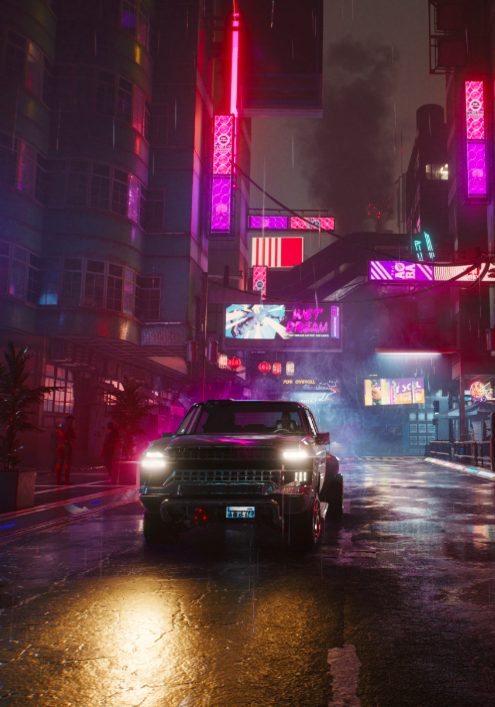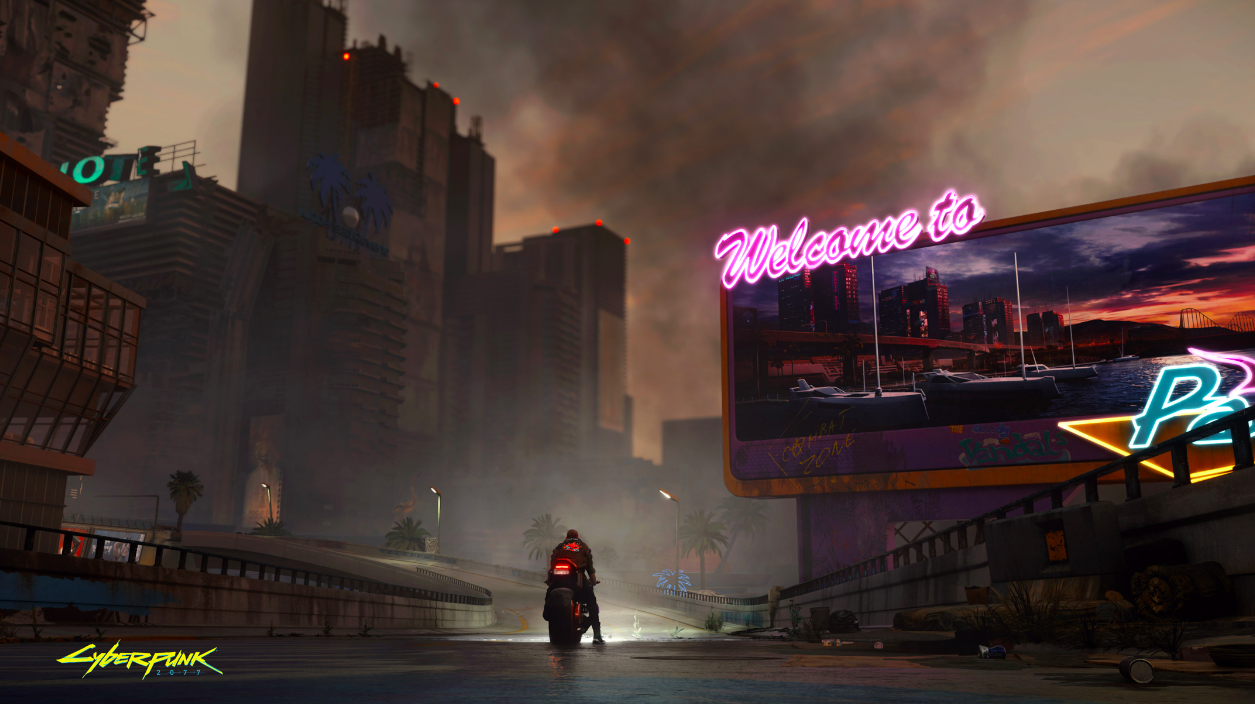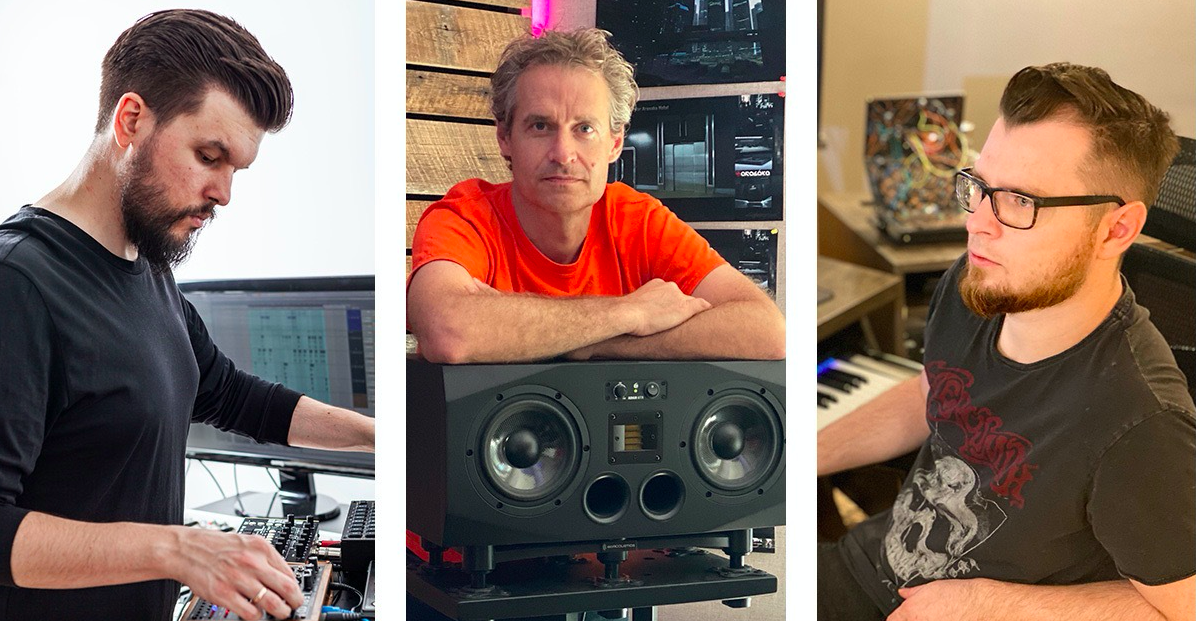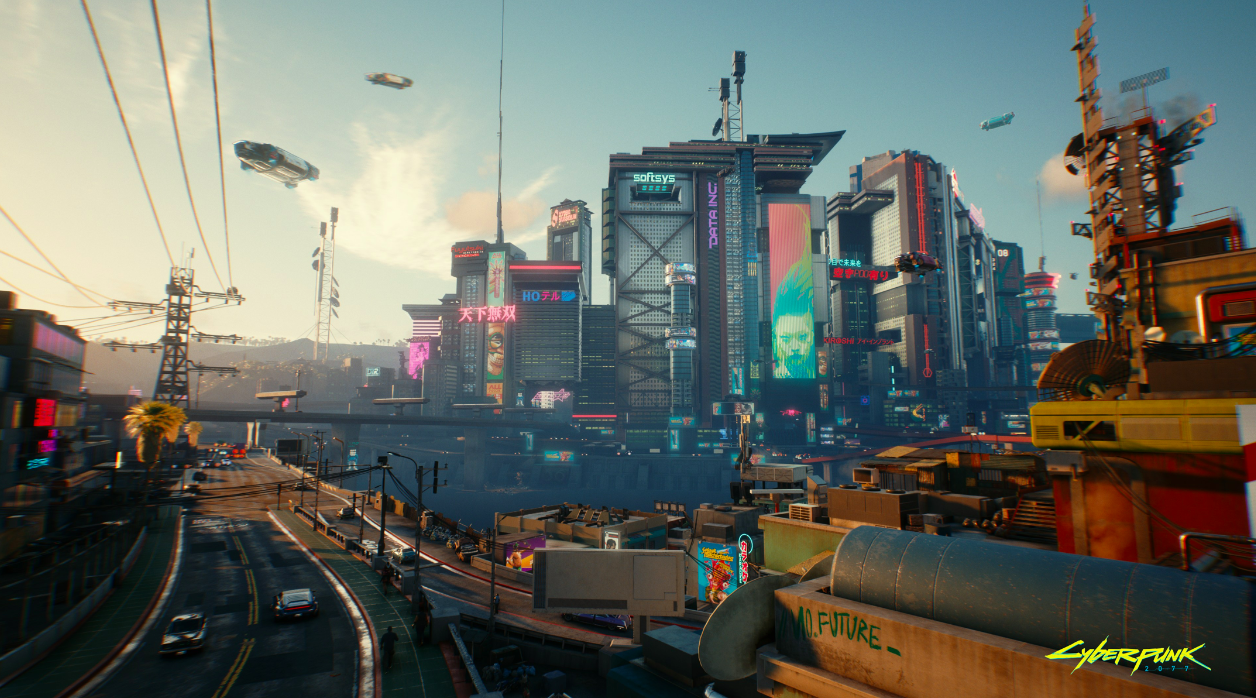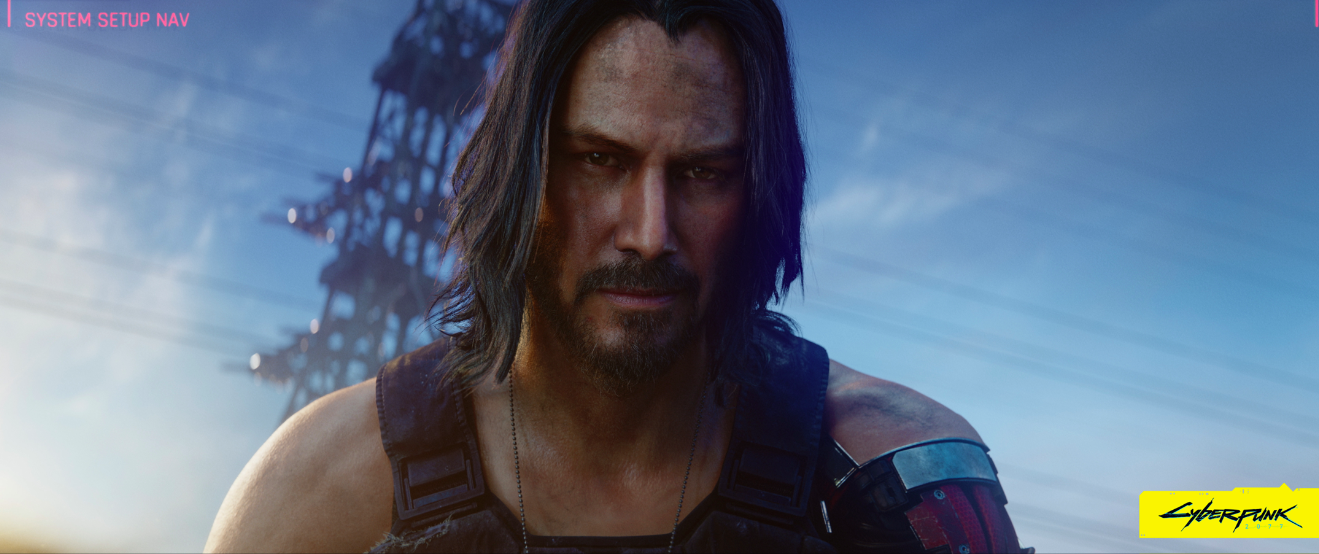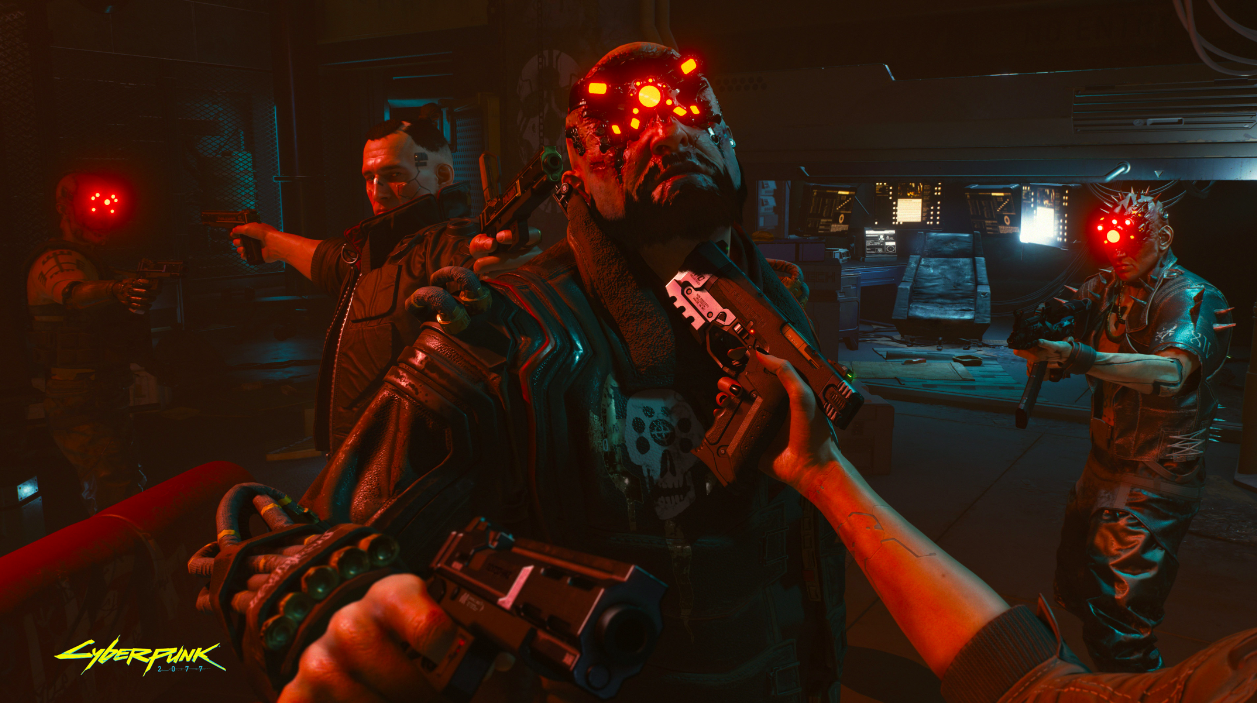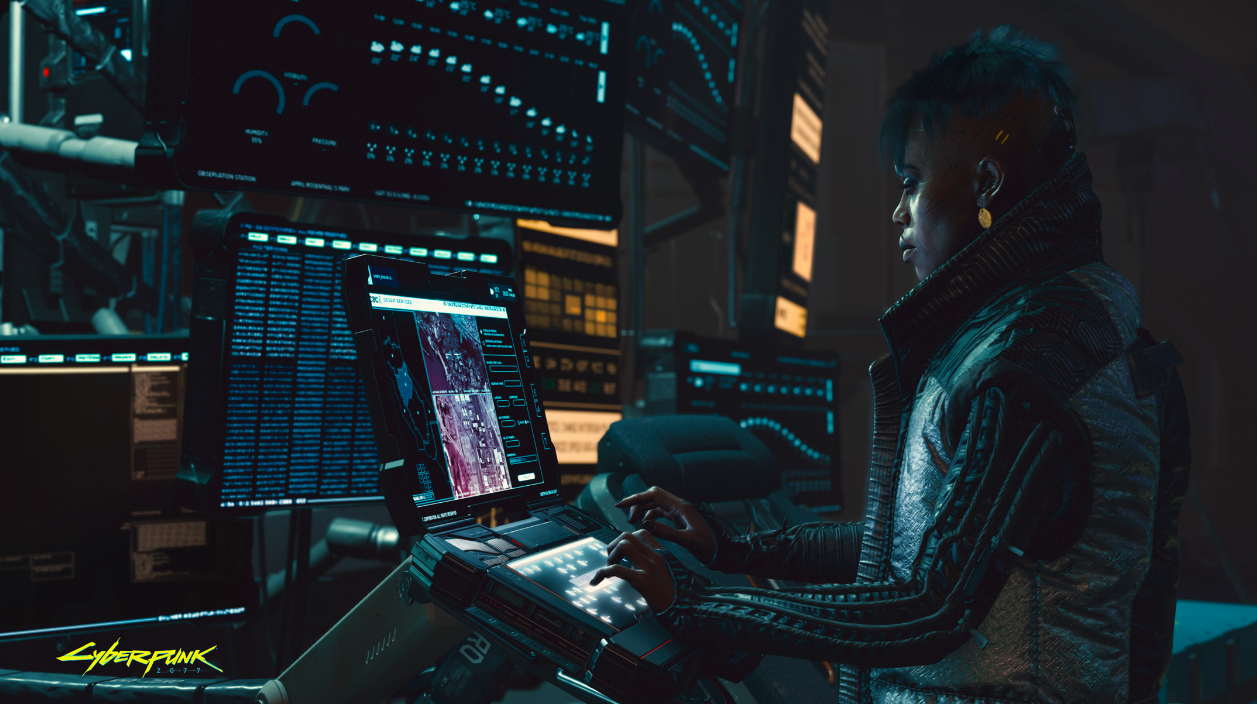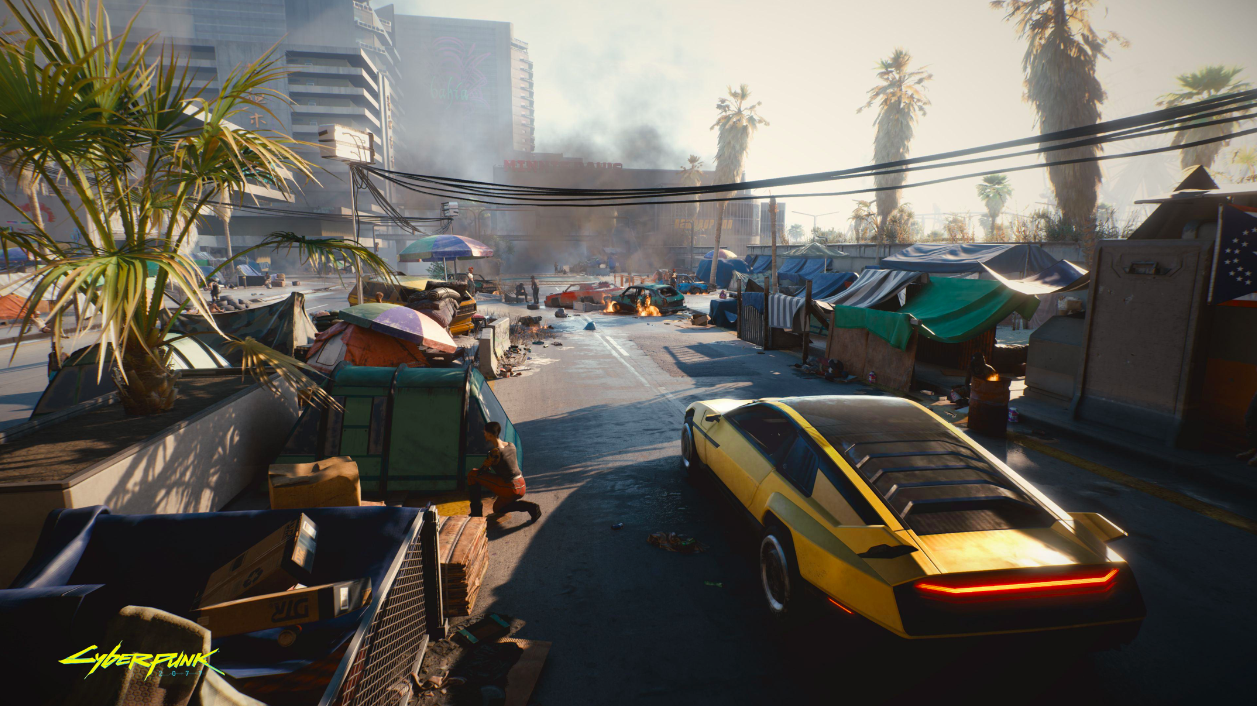Gamers have been patiently waiting for the launch of Cyberpunk 2077 since 2012, and today, it’s finally here. Composers Marcin Przybyłowicz, P.T. Adamczyk and Paul Leonard-Morgan explain how they packed more attitude than a Keanu Reeves franchise into the most hyped-up open world RPG release of all time.
“Cyberpunk, for me, was intimidating as hell, because it's big, it's complex and it shines with the whole palette of colours,” admits Marcin Przybyłowicz, who joins Headliner on a slightly chaotic Zoom call with P.T. Adamczyk and Paul Leonard-Morgan – all three who scored the music for the most highly-anticipated AAA video game title in recent memory: Cyberpunk 2077.
Przybyłowicz (The Witcher 3: Wild Hunt) and Adamczyk (Gwent: The Witcher Card Game) join from Poland, while British-born Leonard-Morgan (Warhammer 40,000: Dawn of War III) joins from L.A. Although they’re clearly used to interviews by now and I can only assume have been doing them pretty much back to back in the run up to Cyberpunk’s release, their enthusiasm for what they’ve achieved and their excitement for gamers to finally get to experience what they’ve been working on for the last three years is palpable. Despite the early wakeup call for Przybyłowicz and Adamczyk, the trio’s banter is still sharp.
To coincide with the game’s launch, CD Project Red very recently dropped the Cyberpunk 2077 Original Score EP, and in attempting to describe it, Adamczyk likens it to a concept album.
“I can’t believe you just called it a concept album, you pretentious wanker!” teases Leonard-Morgan.
Adamczyk holds firm: “I love using this! To me, it's the most suitable description for something like this. Okay, there are probably better ways of describing it, but to me a concept album is probably the coolest. We curated the soundtrack and edited the cues to give listeners the best Cyberpunk listening experience.”
Leonard-Morgan insists he is joking, and points out just how different it is to compose music for a game of this size when compared to a film, where composers score to picture and audiences experience the end result in the same way.
“In a game, people play at their own pace. There's over 100 hours of gameplay in Cyberpunk – well, it's probably 900 for me if you factor in how shit I am. When you're playing it, it’s all about giving people the atmosphere and emotion.
"The idea of a soundtrack album is to give people an idea of the world that we've created; you can immerse yourself in that without the game and you can actually hear the different layers coming in the tracks that we've done. People can listen to it and take that Cyberpunk journey with us.”
